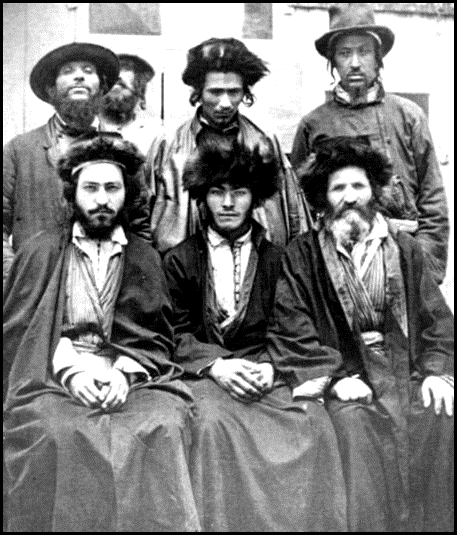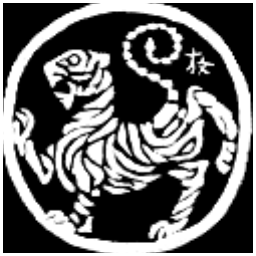I. J. Singer
(Other Books)

Simha is a man of prodigious memory, is able to craft his ultimate takeover of the largest weaving factory in Lodz. He doesn't have time to think about his wife nor his children. His task is to become "The King of Lodz."
His brother Jacob wins the easy way: he marries the daughter of the richest man in Warsaw (she saw him, fell in love with him); then, when she tires of him --- sly dog --- he marries Simha's now rich daughter Gertrud.
If anybody else were writing this book, they'd probably be accused of being anti-Semitic ... for many of the characters come to be a parody of Jewish life. Thus when the workers in Simha's factory strike and bring him their demands, he
- had the impulse to seize the paper, crumple it, and throw it to the ground ... but he restrained himself. These were not Jews, but gentiles and prone to violence. ... Life to them wasn't worth a groschen, not their own or that of others, so he tugged at the ends of his vest as if it were too short for him and listened.
He thinks, "There were so many workers, thousand of them, and only one treasury to carry them all. If each worker drew a little less, the savings would be enormous. In the course of a year all these losses could be made up. Those workers who objected were free to leave."
Parody, yes; maybe even caricature. But The Brothers Ashkenazi is far more. It is the story of the evolution of a city --- Lodz --- from a farming community into the financial capital of Poland. It also is a study of the lowly worker pitted against those who make money and build the plants ... and ultimately screw the workers. It's a novel that Marx himself might have written if he had been interested in story-telling rather than manifestos.
The Brothers is a veritable panoply of long-suffering wives, rich loafers, poor holy men, revolutionaries, and those who scheme to create fortunes out of nothing. It is most of all, a tale of the fine interstices of Jewish life in 19th Century, in a country that was, at least until the beginning of WWII, one of the richest areas in the world for music, culture, religion, tradition, and life.

For when the Great War comes, the Ashkenazi fortunes disappear ... along with the destruction of their very homes and a corrosive inflation. In a foretaste of what was to come, "Business establishments were sealed; jewelry was plucked from women's necks and wrists; men's watches and wallets were seized. The wealthier Jews fled the city, salvaging whatever they could in order to resettle in the Land of Israel and build a new Poland, a new Piotrkow Street in the Land of the Ancestors, in North or South America."
- The city gentiles stood before the gates of their houses, watching the exodus of Jews from the land their ancestors had occupied for a millennium. They didn't know whether to cheer or to mourn.
The Brothers Ashkenazi is exhilarating and numbing. The author captures the essence of commerce ... all framed in the history of a single family, ending with the murder of an entire culture. Singer shows himself to be a prophet of what was to befall the next generation (this book was completed in 1935).
In its last pages, the novel turns sinister and bitter. When the brothers try to return to Poland, the border guards order them off the train, steal their possessions, order them to "Dance!" Simha does what he is told; Jacob won't: he strikes out ... and is shot dead. The last we see of him is him lying on the ground where "a trickle of warm blood ran down his face and into his dyed beard."